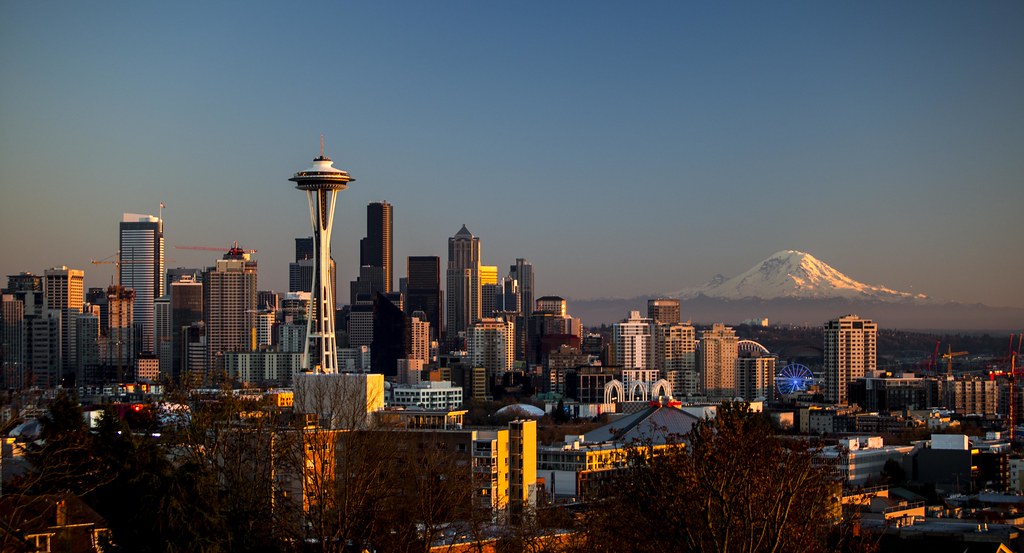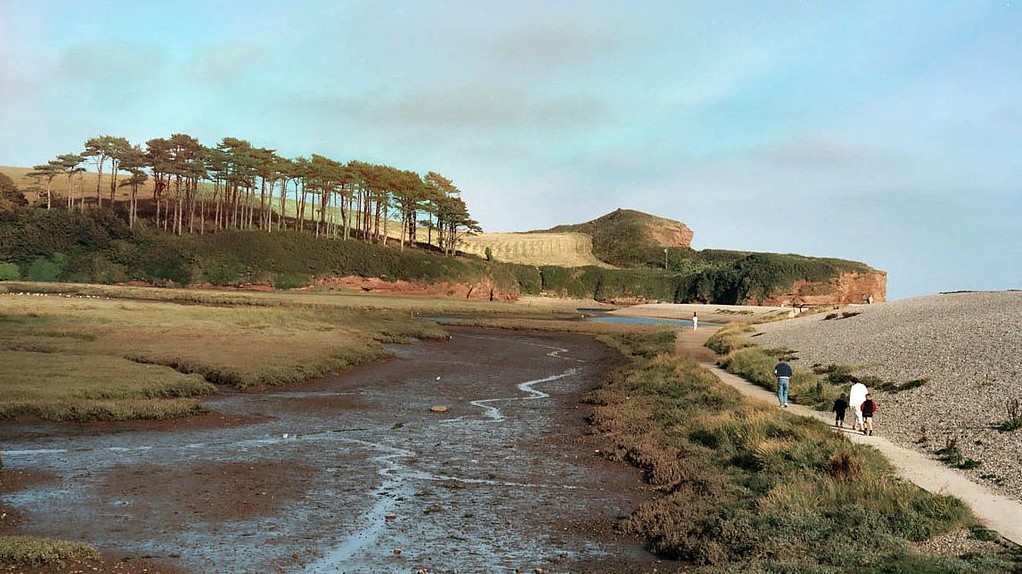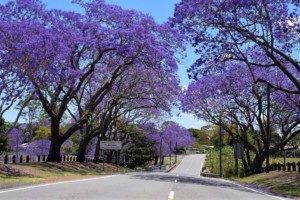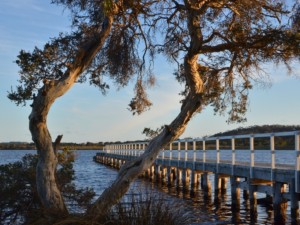Good news in tourism Mar 29 to Apr 4, 2020

With insights representing the small, the medium, and the large; the private, the public, and the PPP; those who care about profit and those who are not-for-profit; received wisdom and heterodox views; The “Good Tourism” Blog is a truly inclusive platform for the travel & tourism industry as it grapples with responsibilities, dreams of sustainability, and searches for a path to recovery … Published Sunday to be ready Monday, “Good news in tourism” is the perfect pick-me-up for the start of a new week in travel & tourism. And go!
Important “GT” stuff first:
According to its founder Karen Simmonds, independent luxury travel agency Travel Matters was built upon the strong sense of responsibility she feels for travel & tourism destinations. In a fresh “Good Tourism” Insight, Ms Simmonds summarises her agency’s origin story and philosophy, and what she’s doing to help communities vulnerable to the coronavirus COVID-19 pandemic.
As Innovations Manager for the German National Tourism Board (GNTB), Olaf Schlieper is the chief scout for issues and trends in travel & tourism. He is particularly interested in sustainable tourism and accessible destinations. In a fresh “Good Tourism” Insight, Mr Schlieper tells us why Germany wants travellers to “FEEL GOOD” about sustainability.
Chris Flynn of “GT” Insight Partner the World Tourism Association for Culture & Heritage spoke to Gerard (Ged) Brown of Low Season Traveller on a podcast about how tourism might be reimagined as it searches for a path to recovery from the health and economic crisis caused by COVID-19. Mr Flynn reckons now is the perfect time for destinations to be undertaking carrying capacity studies for the benefit of all tourism stakeholders, especially host communities.
And “GT” reckons Mr Flynn is right.
“GT” rant alert. To skip, scroll down to the next subheading.
Everything most of us dislike about mass tourism, host communities also dislike thanks to the NIMBY (not in my backyard) attitude. Crowded public spaces? NIMBY. Environmental degradation? NIMBY. Eroding culture? NIMBY. Crumbling heritage? NIMBY. Overflowing landfill? NIMBY. Food and water insecurity? NIMBY. Excessive housing costs? NIMBY. Etc.
So when it comes to what happens “on the ground” — tourism policy, immigration policy, energy policy, infrastructure, zoning, or whatever — it is perhaps best to consult with people who live on and around that ground. Why? Because it’s their backyard!
This isn’t a swipe at the obvious caricatures on the right. Passionate “progressives” who populate the chattering classes in travel & tourism and broader society also have to learn to trust people and to engage with them. The arrogant air of moral, social, or intellectual superiority some progressives conspicuously signal isn’t progressive at all. It’s regressive and, frankly, “deplorable”! And ordinary people, increasingly, resent it.
To the extent liberal democracies (for example) have delivered unprecedented levels of human flourishing and continue to uphold hard-won civil rights and environmental standards, it is because they (in this example) are liberal democracies — everyone has a say and a vote. Thus your correspondent implores the left side of politics to stop whining about unexpected electoral outcomes and imagined injustice and start listening to and engaging with their working class base … their community.
But what would “GT” know?
‘Wēijī’, the “danger at a point of juncture”, & an opportunity
More “GT” stuff. To skip, scroll down to the next subheading.

It turns out that the Chinese word for crisis, wēijī, does not in its written form include the character for “opportunity”. Rather than signifying “danger” and “opportunity” as is a common misapprehension, wēijī represents “danger at a point of juncture”.
Regardless, this doesn’t remove the fact that one faces a choice whether or not to make the best of a bad situation.
Your correspondent, on behalf of The “Good Tourism” Blog, has made a choice to push through this SARS-CoV‑2 crisis, to continue bringing you the usual links to positive industry news and ideas via “Good news in tourism …” (proudly established December 1, 2019), “GT” Insights (inspiring since 2017), and “GT” Destinations (NEW!).
NOW, at this juncture, The “Good Tourism” Blog offers you an opportunity to reflect on your achievements, mistakes, and lessons learned and to outline your vision for the future; to tell the story of your “Good Tourism” journey; to share your “GT” Insights.
While the opportunity is free-of-charge, please do take it seriously as it will be as much an investment of “GT’s” time proofing, publishing, and promoting your ideas as it is an investment of your time writing them down. (Hint: It is also a public relations and brand- and link-building opportunity for your organisation.)
Also, please subscribe to “GT’s” weekly e‑news (it’s free) and follow “GT’s” various socials, such as “GT’s” new LinkedIn page.
If you find “GT” content inspiring, interesting, somewhat amusing, or at least different then surely it’s worth something to you … Please …
Pandemic perspective
Tourism is a sign of human flourishing; a rare phenomenon in our species’ history. It is a luxury. Tourism is the caffè e latte froth of successful market economics; the non-essential discretionary spending that is derived, ultimately, from the surplus of much more vital goods and services. This is, of course, why travel is among the first items to be scaled back or struck off most household budgets in times of hardship. It is why governments shut it down to tighten security and maintain order. They don’t shut down farms.
Guess what: If true sustainability includes the ability to exist constantly in any set of circumstances then tourism can never be sustainable. Of course that is not what our industry means by “sustainable tourism”.
It turns out that basics such as food, water, shelter, and health are much more important than travel & tourism (except when travel is necessary to secure those essentials). Who knew? Collectively the travel & tourism industry needs to know. And it should be reminded of it often during frothy times so as not to get “too big to fail” or so arrogant that it is happy to override the concerns of host communities.
Tourism jobs and businesses — and blogs! — are important to those who have them, of course, but not at the expense of delivering the basics to everyone during a health and economic crisis, such as this new coronavirus pandemic.
That’s why, in that sense, it is good news that the Philippines Department of Tourism (DOT) will return some PHP 8 – 10 billion (USD 160 – 200 million) in funds to the national government for its fight to contain COVID-19. The funds come from the PHP 14 billion (USD 270 million) earlier announced for tourism recovery projects, which in turn was more than half of a national pandemic recovery package of PHP 27 billion.
Tourism Secretary Bernadette Romulo Puyat expects some of the returned money will be spent quarantining returning OFWs (overseas Filipino workers). She asked the accommodation sector to help house those workers because “it’s better for [hotels] to be earning a little from these guests, than none at all”.

Jamaica’s Minister of Tourism Edmund Bartlett has appointed Dr Elaine Williams as Coordinator of Pandemics at the Global Tourism Resilience and Crisis Management Centre. “Global pandemics, such as the coronavirus, threaten the lives and livelihoods of so many and there is a need to build capacity for clinical resilience to mitigate against them,” he reportedly said.
In the USA, the former Vice President of Marketing for the Hawaii Tourism Authority (HTA), Frank Haas, sees an opportunity for sustainability as HTA plans for recovery. Mr Haas reckons the industry should focus on developing improved tourist experiences to attract a smaller volume of high-spending tourists. “We need to have tourism be what it should be, which is a contributor to the economy and a contributor to quality of life.”
Also in the USA, the Washington Tourism Alliance (WTA) launched the Show WA Love website, which offers a platform for Washingtonians to purchase gift cards now for future use. WTA is a membership-based not-for-profit organisation established after the Washington State Tourism Office closed in 2011.
The UK’s National Lottery Heritage Fund announced GBP 50 million (USD 61.9 million) of “lifeline” emergency funding to support heritage projects during the pandemic.
Wildlife & nature-based tourism
Good wildlife news from Myanmar: “According to an annual survey conducted in February 2020 […] Myanmar’s Irrawaddy dolphin population was counted at 79 individuals, a significant increase from 72 individuals counted in February 2019.” It’s the highest number recorded since records started more than a decade ago. This news appeared in a newsletter from the Living Irrawaddy Dolphin Project; the subject of a wonderful “GT” Insight by Paul Eshoo published in January.
In Africa, black rhino numbers have more than doubled from about 2,500 in the 1990s to 5,600 now, according to the International Union for Conservation of Nature (IUCN). However, there is still much to do. “This will be an ongoing challenge, particularly as wildlife tourism has been hard hit by the global coronavirus pandemic,” said Dr Jacques Flamand of the South Africa-based WWF Black Rhino Range Expansion Project.

The rewilding of beavers in the River Otter in Devon, England has brought environmental benefits to the river and economic benefits to local communities. Businesses have “received a boost thanks to an increase in eco-tourism from visitors hoping to spot the UK’s first wild beavers in 400 years”.
As Forestry Administration officials in Cambodia’s Kampong Thom province began studying the ecotourism potential of the Prey Kbal Bei Community Forest in Santuk district, Wildlife & Natural Resources Protection Organisation Director Touch Nora said tourism is a great way to improve the people’s lives and reduce economic migration.
Electric aviation
Aviation industry employees’ “eyes glitter when electric aviation is mentioned”, according to the Nordic Network for Electric Aviation (NEA). Its boss, Maria Fiskerud, believes electric aviation has arrived and is here to stay. She says Nordic countries want to set the global standard for electric aviation and its infrastructure. Ms Fiskerud reckons one third of domestic routes in Sweden will be electrified by 2030.
In the USA, a Burlington, Vermont-based company that is developing an electric vertical-lift (eVTOL) airplane has created a prototype charging station for electric aircraft; a structure likely to be critical to the future of electric aviation.
Odds & ends

Newsy bits that don’t easily fit into this week’s arbitrary clusters:
Pursuing the idea that teaching someone how to fish is better than passing them fillets, a few tour companies are breaking from the established trend of donating to local charities by instead investing in local microfinance programs. This “allows for a more diverse array of businesses to be funded beyond those that might appear glamorous in marketing materials.”
Byron Shire Councillors voted to resurrect a rail service between Byron Bay and Mullumbimby in New South Wales, Australia. The project promises “a great social and environmental outcome from something that also benefits tourism”, Cr Richardson reportedly said.
Have a good week!
Featured image (top of post): Downtown Seattle, Washington state, USA at sunset. By Tiffany Von Arnim (CC BY 2.0) via Flickr.
To help your correspondent keep his energy-efficient lights on, please consider a private one-off gift or ongoing donation. THANK YOU to those who have! <3
You are a tourism stakeholder — yes, YOU! — so what’s your view? Do you disagree with anything you have read on “GT”? Join the conversation. Comment below or share your “Good Tourism” Insights. Diversity of thought is welcome on The “Good Tourism” Blog.
Disclaimer 1: It is “GT’s” policy to fully disclose partner/sponsor content. If an item is not disclosed as partner or sponsor-related then it will have caught “GT’s” attention by some other more organic means. Partner with “GT”. You know you want to.
Disclaimer 2: None of the stories linked from this week’s post have been fact-checked by “GT”. All terminology used here is as the linked sources used it according to the knowledge and assumptions they have about it. Please comment below if you know there has been buzzword-washing or blatant nonsense relayed here, but be nice about it as the linked sources might get offended. (“GT” won’t.) And as for “GT” bringing it to your attention so that you might be the one to set the record straight, you are welcome! 🙂





